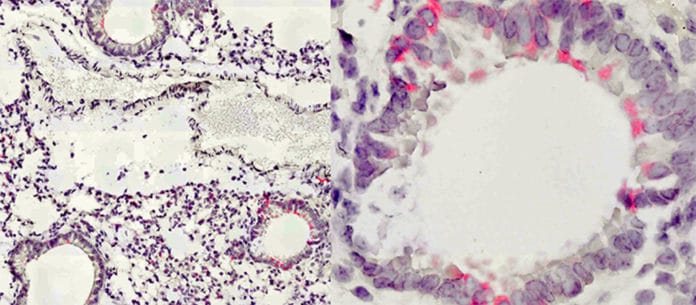Commensal microflora, likewise called indigenous microbiota, is a complex set of bacteria and protozoa, situated under the superficial layer of the skin, and on a large part of the mucosal surface characterized by the presence of an overlying mucosal fluid, for example, among others, nasal and bronchial mucus. This microbiota is present from birth and keeps up a commensal relationship, for example, characteristic organic cooperation between two living beings. Ongoing investigations show that the bacterial microbiota confers colonization resistance against bacterial pathogens.
Well, it is well known how commensal bacteria in the gut fight off pathogens. But how lung bacteria carry out this role is less clear.
A research team of the University of Geneva (UNIGE) studied the role of lung microbiota against Pneumococcus colonization. Pneumococcus colonization is an important human pathogen responsible for many co-infections associated with flu.
Past studies have shown that a significant amount of Lactobacillus bacteria, which are known to act as antimicrobials and immune system modulators, exist in healthy mice’s lung microbiota. In this new study, scientists identified these commensal bacteria as Lactobacillus murinus (L. murinus).
Using gene sequencing and microscopy, they found that the bacteria are tightly associated with mouse lung tissue.
Scientists further exposed cultures of L. murinus to pneumococcus.
Co-first author João Pereira Bonifacio Lopes, a Ph.D. student at the UNIGE, said, “This antibacterial activity was not limited to pneumococcus. It also affected S. aureaus, the pathogen that can cause bloodstream, bone, and joint infections, as well as pneumonia.” By treating mice with L. murinus following influenza A infection, we found that the bacteria provided a barrier against pneumococcal colonization in the animals.”
Senior author Mirco Schmolke, Professor at the Department of Microbiology and Molecular Medicine of UNIGE Faculty of Medicine, said, “This suggests that resident commensals in the lung could be applied as probiotics to counteract lung colonization by pathogenic bacteria. However, further studies are needed before this can be explored as a potential treatment in humans. If it one day proves to be effective, the approach could improve the clinical outcomes for patients who are susceptible to respiratory tract infections.”
Journal Reference:
- Soner Yildiz et al. Respiratory tissue-associated commensal bacteria offer therapeutic potential against pneumococcal colonization. DOI: 10.7554/eLife.53581
